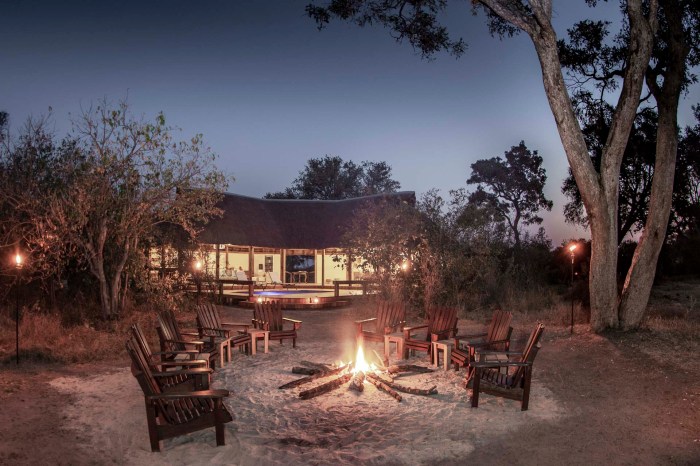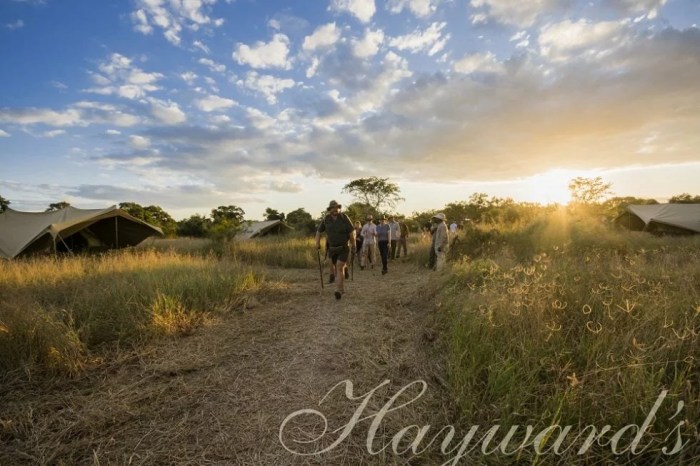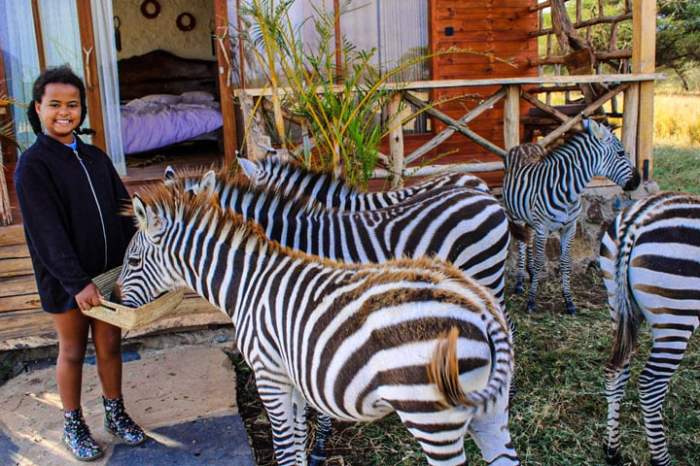Best Hotels With Wildlife Encounters And Safari Access
Exploring the Best Hotels with Wildlife Encounters and Safari Access opens a doorway to unforgettable experiences where nature and comfort intertwine. Staying at these remarkable hotels not only provides a cozy retreat but also invites adventure right at your doorstep, allowing you to witness the beauty of wildlife up close.
With the thrill of safaris just moments away, these accommodations offer a unique opportunity to immerse yourself in the wild, making every stay an adventure of a lifetime. From breathtaking landscapes to diverse animal species, the magic of wildlife is waiting for you in places designed to enhance your experience.
Introduction to Wildlife Encounters and Safari Access
Staying at hotels that offer wildlife encounters provides a unique opportunity to connect with nature in ways that are both thrilling and enriching. These accommodations often serve as gateways to some of the world’s most breathtaking landscapes and diverse ecosystems. The significance of such stays lies not only in the comfort they offer but also in the experiences they facilitate, allowing guests to witness the beauty of wildlife up close.The appeal of safari access from hotel accommodations cannot be overstated.
Guests can step directly from their rooms into the heart of the wilderness, making it easy to embark on exciting safari adventures. This seamless transition enhances the overall experience, allowing visitors to maximize their time in nature. Unique wildlife-focused stays are not just about comfort; they provide immersive experiences that create lasting memories.
Unique Experiences from Wildlife-Focused Stays
The charm of wildlife-focused hotels lies in the extraordinary experiences they offer. Guests often find themselves in close proximity to a variety of animals and breathtaking landscapes. Here are some examples of the unique encounters available:
- Guided Safari Tours: Many hotels provide organized safaris led by knowledgeable guides, ensuring guests not only see wildlife but understand their behaviors and habitats.
- Wildlife Watching from the Room: Some accommodations feature viewing decks or balconies that offer direct views of animals roaming in their natural environment, allowing for peaceful observation.
- Conservation Engagement: Guests can participate in conservation efforts, such as tracking endangered species or engaging in community projects, making their stay impactful.
- Cultural Experiences: Interactions with local communities often complement wildlife encounters, providing insights into the relationship between people and nature.
- Night Safaris: Unique night-time excursions reveal nocturnal wildlife, providing a completely different perspective of the local ecosystem.
The experiences at these hotels extend beyond mere observation; they invite guests to engage with the environment and contribute to its preservation. A stay at a wildlife-focused hotel is not just a vacation; it’s an opportunity to build a deeper connection with the natural world and foster a greater appreciation for its wonders.
Top Destinations for Wildlife Hotels

Source: wildencountersafaris.com
The world is brimming with extraordinary destinations that offer stunning opportunities for wildlife encounters and unforgettable safari experiences. These locations are not just places to stay; they are gateways to the wild, where nature thrives and visitors can immerse themselves in the beauty of diverse ecosystems. In these remarkable destinations, visitors can observe magnificent creatures in their natural habitats, from the majestic elephants of Africa to the playful dolphins in the ocean.
Each region is unique, showcasing distinct wildlife and environmental conditions that contribute to the richness of the experience.
Popular Wildlife Destinations
Several regions across the globe are renowned for their rich biodiversity and exceptional safari opportunities. Here is a closer look at some of the top destinations, highlighting key features and the wildlife they are famous for:
| Destination | Wildlife Richness | Safari Opportunities |
|---|---|---|
| Serengeti National Park, Tanzania | Home to the Great Migration, including wildebeests, zebras, and predators. | Multiple safari types, including game drives and hot air balloon safaris. |
| Kruger National Park, South Africa | Big Five presence with lions, elephants, rhinos, leopards, and buffalo. | Self-drive or guided safaris available in diverse ecosystems. |
| Borneo, Malaysia | Rich in orangutans, proboscis monkeys, and unique flora. | Jungle treks and river safaris for immersive experiences. |
| Arenal Volcano National Park, Costa Rica | Diverse wildlife including sloths, toucans, and poison dart frogs. | Combination of hiking and guided wildlife tours. |
| Galapagos Islands, Ecuador | Unique species such as giant tortoises and marine iguanas. | Cruise safaris and land-based tours to explore the islands. |
The richness of wildlife in these regions creates unforgettable memories. Each destination provides visitors with a unique opportunity to connect with nature, offering experiences that are not only thrilling but also educational. The ecosystems surrounding these locations are vital for conservation efforts, making every visit an essential contribution to preserving these natural wonders.
Features of the Best Wildlife Hotels
Staying at a wildlife hotel can transform your vacation into an unforgettable adventure. The best wildlife hotels not only provide luxurious accommodation but also immerse guests in the beauty of nature, fostering genuine connections with the surrounding wildlife. These hotels are specially designed to enhance your experience while prioritizing the well-being of the environment and its inhabitants.A significant aspect of wildlife hotels is the range of amenities that facilitate unique wildlife experiences.
From guided tours led by knowledgeable naturalists to strategically placed observation decks, these hotels ensure guests can appreciate nature without compromising on comfort. Sustainability practices are also integral, allowing for responsible tourism that supports conservation efforts and protects the ecosystems that guests come to admire.
Amenities to Enhance Wildlife Experiences
When choosing a wildlife hotel, guests should look for key features that enhance their stay and connection with nature. These amenities not only provide comfort but also enrich the wildlife experience:
- Guided Wildlife Tours: Expert-led excursions that bring you closer to local wildlife, offering insights into animal behavior and habitats.
- Observation Decks and Viewing Platforms: Elevated areas designed for unobstructed views of wildlife in their natural habitats, allowing for safe and memorable encounters.
- Eco-friendly Accommodations: Rooms and lodges constructed with sustainable materials and practices, minimizing their environmental footprint.
- Wildlife Education Programs: Workshops and presentations on local ecosystems, conservation efforts, and animal conservation to deepen guests’ understanding and appreciation.
- Customized Itineraries: Tailored experiences to meet the specific interests of guests, whether it’s bird watching, safari drives, or photography sessions.
- Outdoor Fire Pits or Bonfire Areas: Social spaces that encourage storytelling and sharing experiences under the stars, creating a sense of community among guests.
- On-site Naturalists or Wildlife Experts: Available for discussions, answering questions, and sharing their passion and knowledge about the local environment.
The importance of sustainability cannot be overstated. Wildlife hotels that adopt eco-friendly practices contribute to the preservation of fragile ecosystems, ensuring that future generations can also experience the beauty of nature.
“Responsible tourism supports conservation, protecting wildlife and their habitats.”
Selecting a wildlife hotel with these features not only enhances your vacation but also supports a greater cause, making your travel meaningful.
Types of Wildlife Experiences Offered
Wildlife encounters provide a unique and unforgettable way to connect with nature. Hotels that offer these experiences bring guests closer to the majestic creatures that inhabit their surroundings, creating memories that last a lifetime. Whether you are an adventurous traveler or seeking a tranquil getaway, a variety of wildlife experiences await you.Different types of wildlife encounters cater to diverse preferences and comfort levels, allowing guests to choose how they want to engage with the natural world.
Guided safaris offer expert insights and safe navigation through wildlife-rich areas, while self-drive options grant travelers the freedom to explore at their own pace. Walking tours provide a more intimate experience, connecting guests with the sights and sounds of nature on foot. Each experience offers unique perspectives and opportunities for discovery.
Guided Safaris
Guided safaris are an immersive way to experience wildlife, led by knowledgeable guides who share their expertise and enhance the experience. These safaris are typically conducted in specially-designed vehicles, ensuring both safety and comfort while traversing through diverse landscapes. Guided safaris are particularly beneficial for spotting elusive wildlife and understanding animal behaviors.
Self-Drive Options
Self-drive options allow guests the freedom to explore wildlife areas on their own terms. This experience is perfect for those who appreciate independence and wish to create their own itinerary. With a rental vehicle, guests can navigate through parks and reserves, stopping whenever they choose to observe animals and take photographs. It is recommended that guests familiarize themselves with the local terrain and wildlife rules for a safe self-exploration.
Walking Tours
Walking tours provide a more personal connection with nature and wildlife. These experiences allow guests to encounter smaller creatures, plant life, and the environment up close. Led by experienced naturalists, walking tours often focus on specific ecosystems or species, offering insights that can be overlooked during a vehicle-based safari. This intimate approach enables travelers to appreciate the intricate details of the ecosystem.
Experience Table
The following table Artikels different types of wildlife experiences based on hotel offerings, highlighting the key features and benefits associated with each option.
| Experience Type | Features | Ideal For |
|---|---|---|
| Guided Safaris | Expert guides, safety, educational insights | First-time visitors, families, those seeking expert knowledge |
| Self-Drive Options | Independence, flexibility, personalized itinerary | Adventurous travelers, couples, experienced visitors |
| Walking Tours | Intimate experiences, focused exploration, naturalist guidance | Nature lovers, photographers, small groups |
Guest Reviews and Experiences
The beauty of wildlife hotels lies not only in their luxurious accommodations but also in the transformative experiences they offer. Guests often share heartfelt testimonials about their encounters with nature and wildlife, highlighting moments that have left lasting impressions on their lives. These experiences are often described as magical, enlightening, and deeply emotional, connecting visitors with the natural world in ways they never expected.Many guest reviews reveal common themes regarding wildlife interactions that transcend mere observation.
Visitors frequently express their astonishment at the close proximity to animals in their natural habitats. The thrill of witnessing a herd of elephants grazing nearby or a lioness with her cubs is often described as a once-in-a-lifetime encounter. These close encounters evoke a profound sense of respect for wildlife and an understanding of the delicate balance that sustains these ecosystems.
Memorable Guest Testimonials
The experiences shared by guests reflect a wide array of emotions, from joy and awe to educational enlightenment. Here are some memorable testimonials that capture the essence of what makes wildlife encounters so special:
“Waking up to the sound of lions roaring in the distance was surreal. It felt like stepping into a documentary, and I could hardly believe I was experiencing it firsthand.”
Sarah L.
“Sitting quietly at a watering hole, I felt a rush of excitement as a group of zebras appeared. The beauty of their stripes and the grace with which they moved was breathtaking.”
John D.
“Our guide was incredibly knowledgeable, sharing stories about each animal we encountered. It wasn’t just a vacation; it was an education that changed my perspective on wildlife conservation.”
Emily T.
These reviews consistently emphasize the emotional impact of wildlife encounters. Guests often describe feelings of connection, not just to the animals, but also to the land and to each other. The shared experience of witnessing wildlife creates bonds among travelers, turning strangers into friends as they marvel at nature together. In addition to the emotions stirred by the encounters, the educational aspects play a crucial role.
Guests frequently mention how much they learned about conservation efforts and the challenges various species face. This newfound awareness often inspires a commitment to wildlife protection long after their stay. The experiences at these hotels open eyes and hearts, fostering a deeper appreciation for the natural world and the importance of preserving it for future generations.
Planning Your Stay

Source: haywardsafaris.com
When venturing into the heart of nature for a wildlife safari, careful planning is essential. This ensures that your experience is not only enjoyable but also enriching, allowing you to connect deeply with the wildlife and landscapes around you. Understanding the best times to visit and preparing adequately can make all the difference in your adventure.The best times to visit wildlife destinations often correlate with the animals’ behaviors and seasonal changes.
For optimal wildlife encounters, many travelers find that the dry season, typically between June and October, offers the best opportunities for viewing animals, as they congregate around water sources. Conversely, the wet season may provide lush landscapes and birthing seasons for many species, but wildlife can be more dispersed, making sightings less predictable.
Best Times of Year for Optimal Wildlife Encounters
Different regions host unique wildlife patterns throughout the year. Here’s a closer look at prime times to plan your visit based on various destinations:
- East Africa (Kenya and Tanzania): June to October is peak migration season, where millions of wildebeest cross the Serengeti.
- Southern Africa (South Africa and Botswana): May to September is ideal for game viewing in Kruger National Park and Chobe National Park due to the thinning vegetation.
- Central Africa (Uganda and Rwanda): June to September is the best time for gorilla trekking, coupled with a lush landscape after the rainy season.
- India (Ranthambore National Park): March to June offers better chances to spot tigers as they are more active during the heat.
Packing wisely for a wildlife safari is crucial to ensure comfort and enjoyment during your stay. Here’s a checklist to guide you in preparing for your adventure:
Packing Checklist for a Wildlife Safari Stay
Consider the following items essential for a successful wildlife safari:
- Clothing: Lightweight, breathable fabrics; neutral colors to blend in; a wide-brimmed hat; and a light jacket for cooler evenings.
- Footwear: Sturdy, comfortable walking shoes or boots for safaris and casual sandals for relaxing.
- Accessories: Binoculars for spotting wildlife, a camera with zoom capabilities, and a good sunscreen to protect against the sun.
- Health and Safety: Personal medications, insect repellent, and a small first-aid kit for minor injuries.
- Technology: A portable charger, travel adapter, and a notebook to jot down your experiences.
“To maximize your wildlife encounters, rise early and be patient. The early morning hours are often when animals are most active.” — Experienced Safari Traveler
Safety and Ethical Considerations
When venturing into the wild to witness the majestic animals that inhabit our planet, safety and ethical responsibility must always come first. Understanding how to interact with wildlife respectfully not only ensures your safety but also protects the animals and their habitats. This section delves into important safety measures and ethical considerations that every traveler should be aware of when encountering wildlife.
Safety Measures for Wildlife Encounters
Encountering wildlife can be an exhilarating experience, but it is essential to prioritize safety. The following measures are critical for ensuring a safe interaction:
- Always maintain a safe distance: Respect the natural space of wildlife. This helps prevent stress to the animals and ensures your safety.
- Follow guidelines provided by guides or park rangers: Professionals are trained to handle wildlife encounters and provide invaluable advice on maintaining safety.
- Be cautious during feeding times: Animals can become aggressive if they feel threatened, especially when protecting their young.
- Stay calm and quiet: Sudden movements or loud noises can startle wildlife, potentially leading to dangerous situations.
- Know the local wildlife: Familiarize yourself with the behaviors and characteristics of the animals you might encounter to reduce risks.
Ethical Considerations for Wildlife Tourism
Visiting wildlife areas carries a responsibility to ensure that interactions with animals are ethical and respectful. Ethical tourism contributes to conservation efforts and promotes the welfare of wildlife. Consider the following principles:
- Choose responsible tour operators: Research and select companies that prioritize the well-being of wildlife and the environment.
- Avoid activities that exploit animals: Do not participate in tours or attractions that involve animal performances or unethical encounters.
- Support conservation efforts: Engage with organizations that work towards protecting wildlife and their habitats.
- Leave no trace: Always follow the principles of “leave no trace,” ensuring that you minimize your impact on the environment.
- Educate yourself and others: Share knowledge about responsible wildlife tourism practices to promote greater awareness among fellow travelers.
Guidelines for Responsible Wildlife Tourism
Responsible wildlife tourism is essential for protecting both the animals and their habitats while enhancing the traveler’s experience. Here are essential guidelines to uphold during your adventures:
- Observe from a distance: Use binoculars or zoom lenses for photography without encroaching upon wildlife.
- Do not feed wildlife: Feeding animals can lead to dependency and disrupt their natural behavior.
- Respect local regulations: Always adhere to the rules and regulations set forth by wildlife reserves and parks.
- Minimize noise and disturbance: Keep sounds to a minimum, allowing for a peaceful environment for both you and the wildlife.
- Be aware of your surroundings: Stay vigilant and respectful of wildlife movements and behaviors.
“Protecting wildlife is not just a choice, it’s a responsibility that we must all share.”
Future Trends in Wildlife Hotels and Safari Access
The wildlife tourism industry is evolving rapidly, driven by a growing awareness of conservation, changing traveler preferences, and advancements in technology. As travelers become more environmentally conscious, the demand for unique, immersive experiences that allow them to connect with nature and wildlife is increasing. This trend is shaping the future of wildlife hotels and safari access, ensuring that they adapt to meet the expectations of modern-day explorers.Technological advancements are playing a crucial role in enhancing wildlife experiences.
Innovations in virtual reality, eco-friendly accommodations, and mobile applications are transforming how guests interact with their surroundings. These advancements not only improve the quality of experiences but also promote sustainable practices that protect wildlife and their habitats.
Emerging Trends in Wildlife Tourism
Several key trends are emerging in the wildlife tourism sector that are set to influence the future of wildlife hotels and safari access. Understanding these trends helps in anticipating the needs and preferences of travelers.
- Sustainable Practices: Wildlife hotels are increasingly adopting eco-friendly practices, such as using renewable energy sources, implementing water conservation measures, and minimizing waste. This not only appeals to environmentally conscious travelers but also helps in preserving local ecosystems.
- Experiential Travel: Guests are seeking more than just a place to stay; they desire authentic experiences that allow them to engage with nature and wildlife. This includes guided safaris, wildlife photography workshops, and conservation volunteering opportunities.
- Personalized Experiences: Technology is enabling wildlife hotels to offer tailored experiences that cater to individual preferences. From customized safari itineraries to curated dining options, personalization is becoming a hallmark of luxury wildlife travel.
- Wellness and Nature Retreats: There is a growing trend towards wellness tourism, where travelers seek rejuvenation through nature. Wildlife hotels are integrating wellness programs, such as yoga in natural settings, meditation, and spa treatments using local ingredients.
Technological Advancements Enhancing Experiences
Technology is reshaping how travelers experience wildlife encounters, providing tools that enhance engagement and education while ensuring visitor safety.
1. Virtual Reality (VR)
Wildlife hotels are beginning to incorporate VR experiences that allow guests to immerse themselves in the natural world. For example, VR simulations of safaris can attract potential visitors by showcasing stunning landscapes and wildlife interactions before their actual visit.
2. Mobile Applications
Many wildlife hotels are developing apps that offer information about local flora and fauna, track wildlife sightings, and provide interactive maps for self-guided tours. This technology helps guests stay informed and connected with their environment.
3. Drones for Conservation
Drones are being used to monitor wildlife populations and habitats, providing data that aids in conservation efforts. Hotels can offer educational tours that explain how drones work in wildlife preservation, creating a deeper connection between guests and the natural world.
4. Smart Accommodations
The integration of smart technologies in accommodations enhances guest comfort and safety. Features like automated lighting, climate control, and digital concierge services are becoming standard in luxury wildlife hotels, improving the overall guest experience.
Predictions for Future Hotel Offerings
Looking ahead, the offerings of wildlife hotels are likely to expand and evolve in several impactful ways.
Cultural Collaboration
Wildlife hotels will increasingly collaborate with local communities to provide authentic cultural experiences. This not only enriches guests’ stays but also supports local economies and preserves cultural heritage.
Enhanced Accessibility
Future wildlife hotels are predicted to focus on inclusivity, ensuring that all travelers, including those with disabilities, have access to wildlife experiences. This may involve building accessible facilities and offering tailored tours.
Focus on Conservation Education
As awareness grows, hotels will play a more significant role in educating guests about conservation efforts and the importance of protecting wildlife. This could include workshops, talks by conservationists, and immersive experiences that highlight local environmental issues.
Integration of Eco-Luxury
The future of wildlife hotels is likely to see a rise in eco-luxury, where sustainability and luxury coexist. Hotels will offer high-end amenities while prioritizing environmental responsibility, attracting affluent travelers who value sustainability.
Ending Remarks

Source: safaris-r-us.com
In conclusion, choosing the Best Hotels with Wildlife Encounters and Safari Access ensures that your journey is not just a trip but a transformative experience filled with wonder and connection to nature. As you plan your visit, embrace the chance to create lasting memories amidst the beauty of the animal kingdom and the stunning environments they call home.
FAQ Explained
What types of wildlife encounters can I expect?
Expect a variety of encounters, including guided safaris, walking tours, and opportunities to observe animals from observation decks.
Are these hotels suitable for families?
Yes, many wildlife hotels offer family-friendly activities and accommodations that cater to guests of all ages.
What should I pack for a wildlife safari stay?
Pack comfortable clothing, binoculars, a camera, sunscreen, and insect repellent to enhance your experience.
How can I ensure my wildlife encounter is ethical?
Choose hotels that prioritize sustainability, follow responsible tourism practices, and respect the natural habitats of wildlife.
What is the best time of year to visit for wildlife encounters?
The best time varies by location, but generally, the dry season offers optimal wildlife viewing opportunities.





